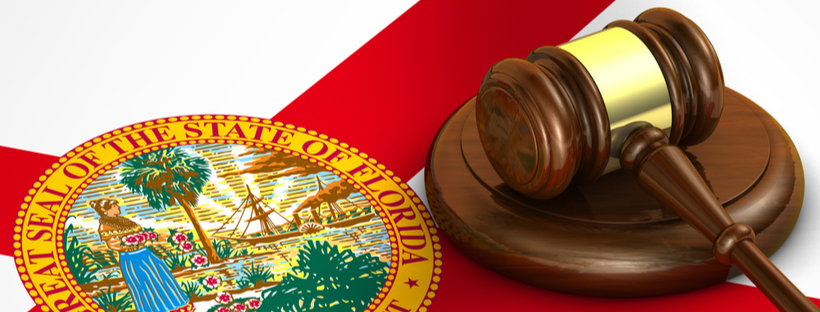Eleventh Circuit Court of Appeals Reverses District Court Decision on Florida’s Vaccine Passport Ban
Eleventh Circuit Court of Appeals Reverses District Court Decision on Florida’s Vaccine Passport Ban
The decision is a win for the Florida governor who sought to protect Florida citizens who chose not to get vaccinated.
In a 2-1 decision reversing United States District Judge Kathleen Williams’ 2021 Preliminary Injunction, the Eleventh Circuit Court of Appeals held that Florida’s vaccine passport ban does not violate the First Amendment or the Dormant Commerce Clause. The court’s decision is a win for Governor Ron DeSantis who sought to protect Florida citizens who chose not to get vaccinated, and a loss for cruise lines (and other businesses) that sought to require customers to provide proof of vaccination.
On May 3, 2021, Governor DeSantis signed into law, a bill that prohibited businesses from requiring individuals provide proof of COVID-19 vaccination in order to receive services. In Norwegian Cruise Line Holdings v. Rivkees, a number of cruise lines sought a preliminary injunction to preserve their policy requiring all passengers to provide documentation confirming they were fully vaccinated prior to boarding. In August of 2021, United States District Judge Kathleen Williams granted the cruise lines’ motion for a preliminary injunction pending resolution of the lawsuit because she ruled that the statute violated the cruise lines’ First Amendment right to free speech, and was unconstitutional under the Dormant Commerce Clause.
Eleventh Court Says Vaccine Passport Ban Does Not Implicate First Amendment or Dormant Commerce Clause
In reversing Judge Williams’ decision, the Eleventh Circuit first held that the vaccine passport ban does “not implicate the First Amendment at all.” The court classified the statute as an anti-discrimination statute and, citing United States Supreme Court cases, observed that the “focal point” of anti-discrimination statutes is “on the act of discriminating against individuals in the provision of publicly available goods, privileges, and services on the proscribed grounds.” Like a statute that prohibits discrimination on account of someone’s race, gender, etc., the vaccine passport ban prohibits discrimination on account of someone’s unvaccinated status. The court held that the statute does not prohibit cruise lines from asking about a customer’s vaccination status, nor does it prohibit customers from sharing their vaccination status with the cruise line. The court noted, however, that “[w]hat businesses may not do is close their doors to customers who decline to present private medical documentation.” Thus, the court held that “the act of closing the doors…is prohibited, not any communicative exchange between them….” Consequently, the court held that the statute did not violate the First Amendment’s free speech protections.
The court also held that the vaccine passport ban does not run afoul of the Dormant Commerce Clause. Because the statute does not directly or indirectly discriminate against interstate commerce, the court applied the balancing test set forth in Pike v. Bruce Church, Inc., 397 U.S. 137 (1970): “Where the statute regulates even-handedly to effectuate a legitimate local public interest, and its effects on interstate commerce are only incidental, it will be upheld unless the burden imposed on such commerce is clearly excessive in relation to the putative local benefits.”
State Interests in Protecting Citizens Against Discrimination and Maintaining Privacy of Residents Prevail
In this case, the State of Florida advanced two state interests. First, that the State claimed an interest in ensuring that businesses do not discriminate against citizens for failing to provide documentation of vaccination status. Second, the State claimed an interest in protecting the medical privacy of its residents. The Eleventh Circuit held that “protecting residents from economic discrimination is a substantial interest” and that “the state interest in protecting the privacy of residents is also substantial.” The court therefore concluded that “[t]aken together, the two state interests are plainly weighty.” And because “Florida’s substantial interests are in matters traditionally of state concern, the burdens section 381.00316(1) imposes on interstate commerce do not clearly exceed its putative local benefits.” Thus, the statute did not violate the Dormant Commerce Clause.
Significance of the Decision
While the decision is politically significant and legally significant in terms of its legal precedent, it appears to be less significant for Norwegian Cruise Line which announced just days before the decision that it was rescinding its vaccine policy. Consequently, it is unclear at this point whether Norwegian will pursue the case further.










